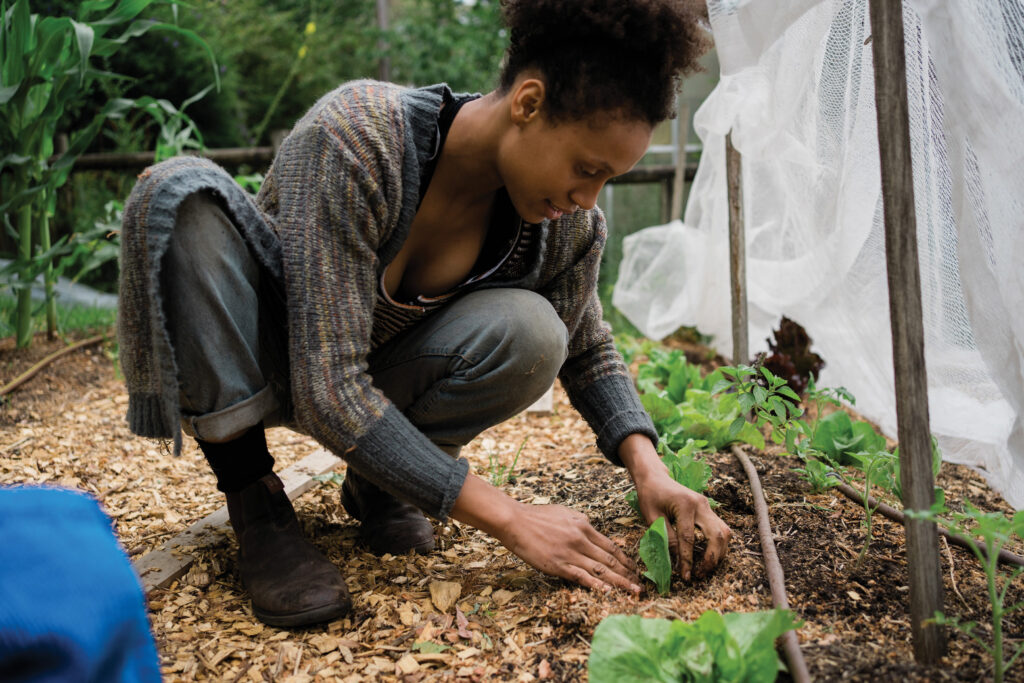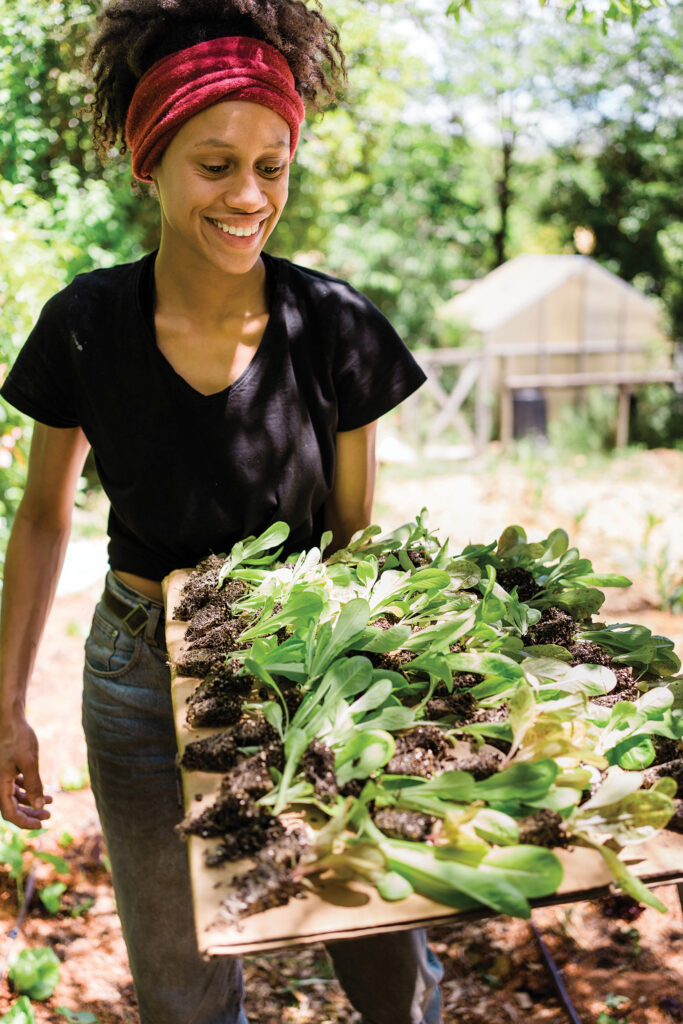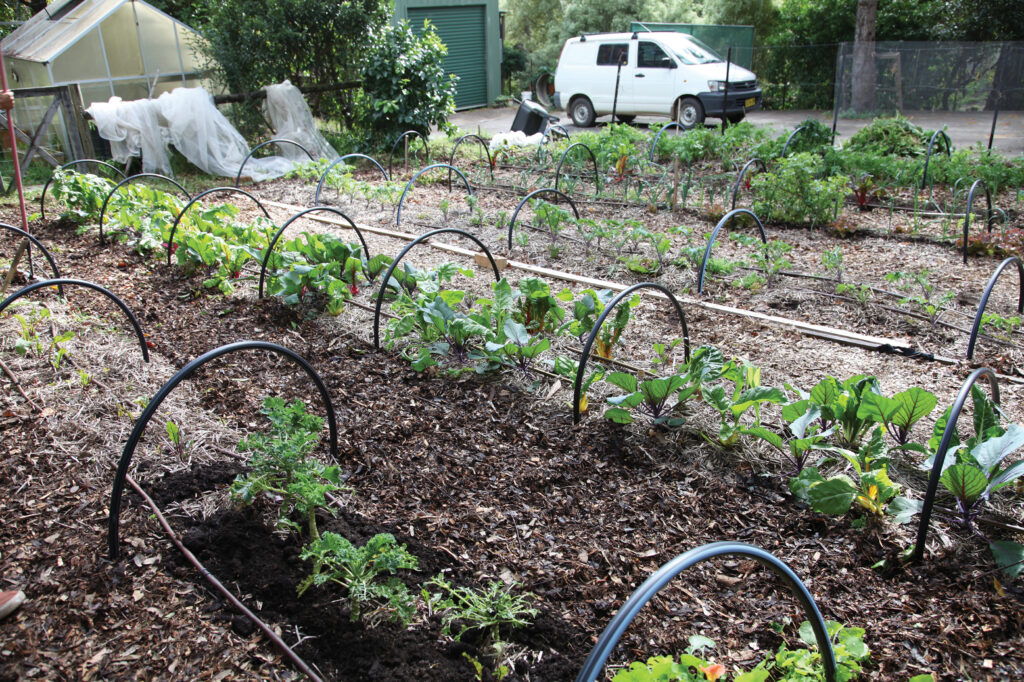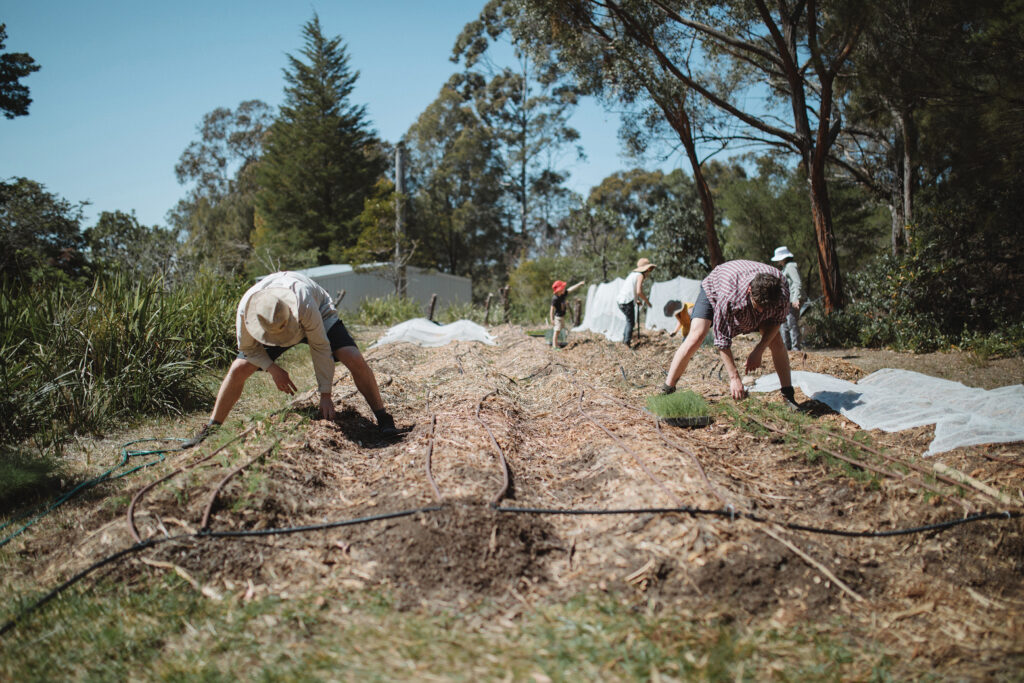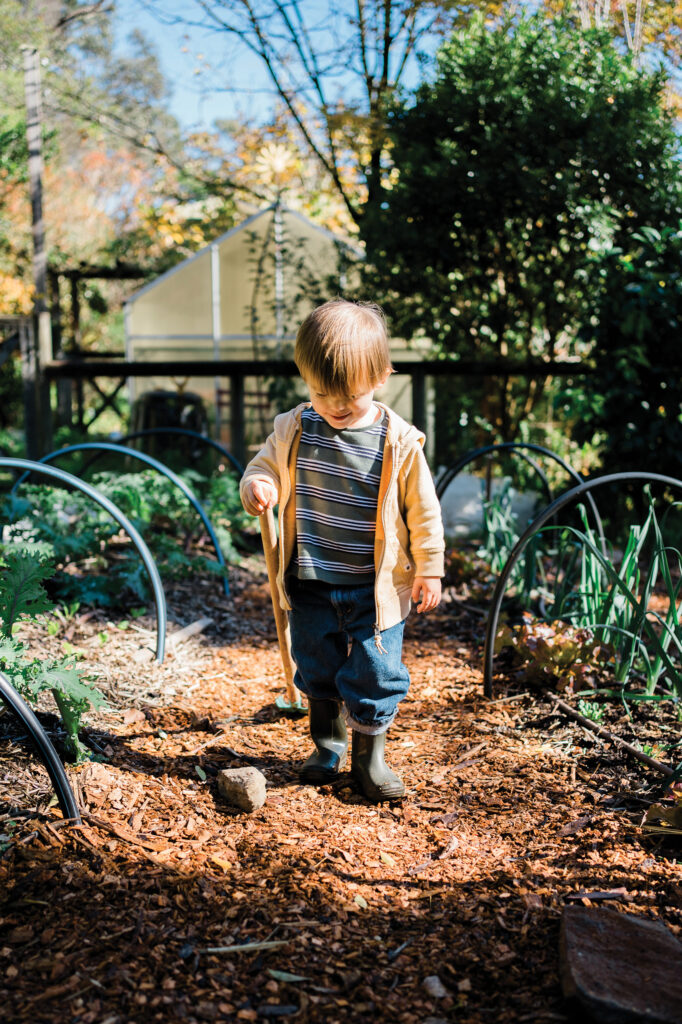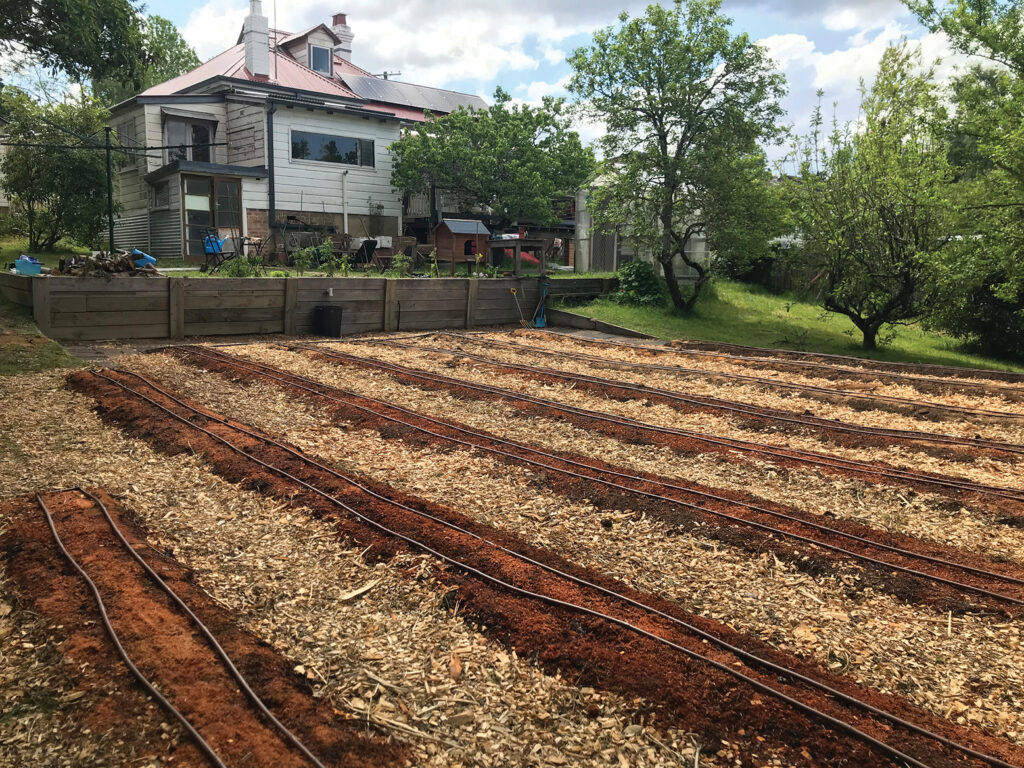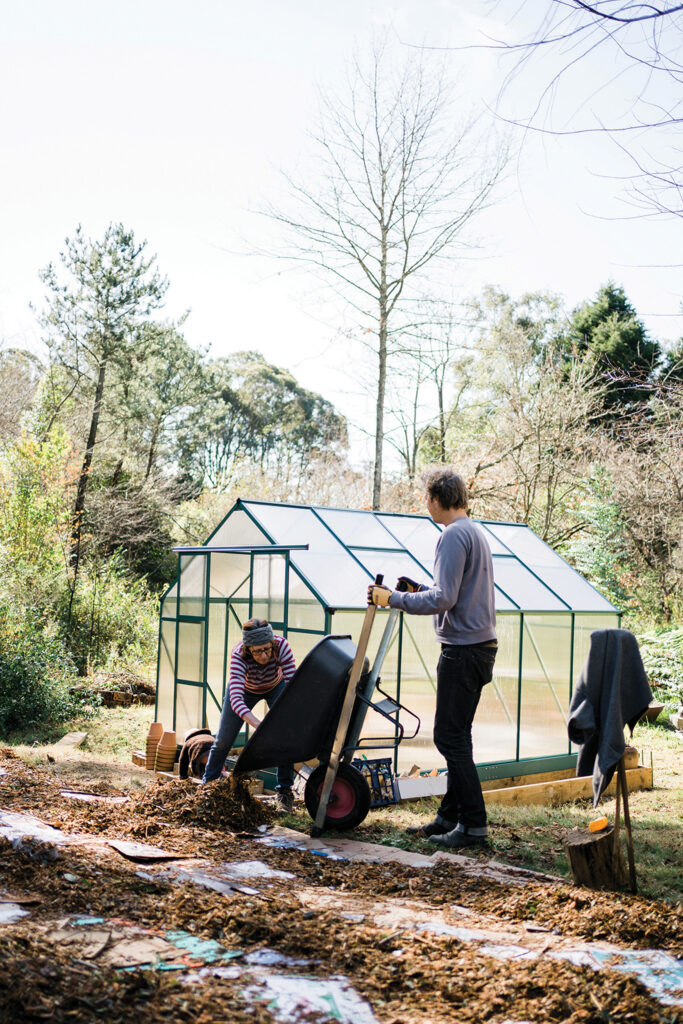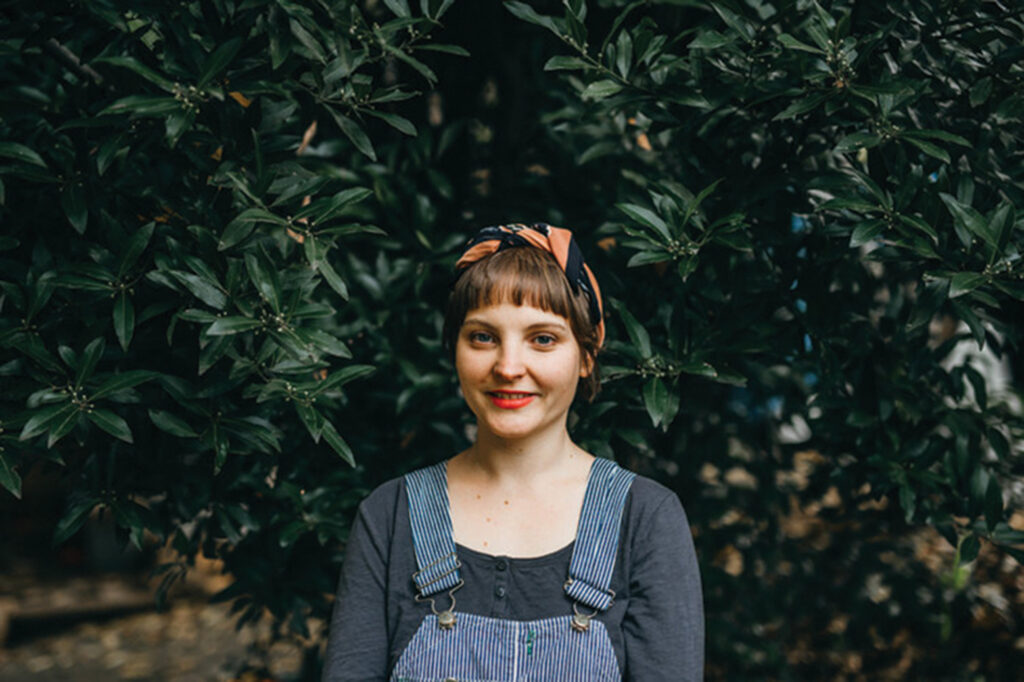People Power
Farm it Forward is transforming unused land into market gardens, but the great value is in the social and environmental benefits for the local community.
Farm it Forward is a social enterprise program that transforms unused land into market gardens, and helps ease feelings of isolation amongst people in the Blue Mountains community. But within its one short year of operation, Farm it Forward has shown its value to be so much more. It faced an unexpectedly challenging first year due to the critical circumstances caused by drought, bushfires and COVID-19, yet these events demonstrated how important the program is for the environment, community and food security.
Manu Prigioni founded Farm it Forward with two young farmers, Jack Galluzzi and Olivia Awaritefe, and Colin Berryman, who is in community development at the city council. The group established the program after looking at council data regarding social isolation, and listening to the concerns of customers at the local Lyttleton Stores Co-op about food, land and the environment.
As a peri-urban area just beyond the outskirts of greater Sydney, the Blue Mountains has large block sizes, which can foster feelings of isolation in landowners and be difficult for residents to maintain due to mobility and time. “The council data revealed there is a large problem with mental health issues stemming from this social isolation. We also found that local people are very ecologically minded, but felt powerless about what to do, which was having an effect on mental health too,” Manu says.
Farm it Forward addresses these issues. Landowners donate a portion of land for growing produce, and a small group of young growers manage the plots, supported by a large group of volunteers. The program currently employs five farmers parttime, with five to 20 volunteers assisting them one day a week and during harvest. There are now more than 10 plots and more than 900 kilograms of produce has been grown during the first year. Landowners receive a weekly box of fruit and vegetables, and the remainder is sold to local caf s, restaurants and food co-ops to provide revenue for the program.
“We grow a huge amount of food, but this is really a positive by-product of the social outreach,” Manu explains. Indeed, in addition to feeding the local community, the program helps ease feelings of isolation, anxiety and loneliness for older people and young parents, and provides skills, training and meaningful employment opportunities and a chance to engage with the land for farmers and volunteers.
These social benefits came to the fore during the restrictions in place to prevent the spread of COVID-19. As an essential business, Farm it Forward continued to operate with social distancing in place and Manu says volunteers turned up in spades, seeking purpose and conversation. Similarly, the environmental and food security benefits were highlighted during the bushfires. The soil retained water, acting as a fire retardant, and the produce provided food for locals when road closures disrupted the supply chain.
Australia has a lot of peri-urban areas, and Farm it Forward envisions a network of programs across the country. “This is a doable approach for generating change in our peri-urban, suburban, even urban areas, and can reconnect us with our land, food and community,” Manu says.
